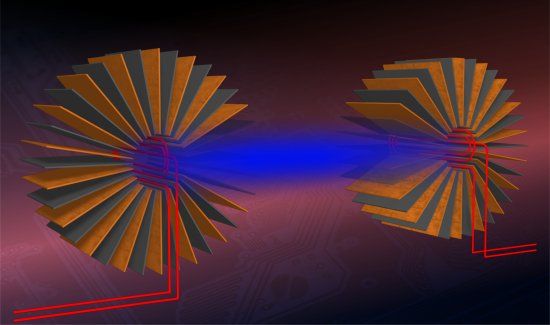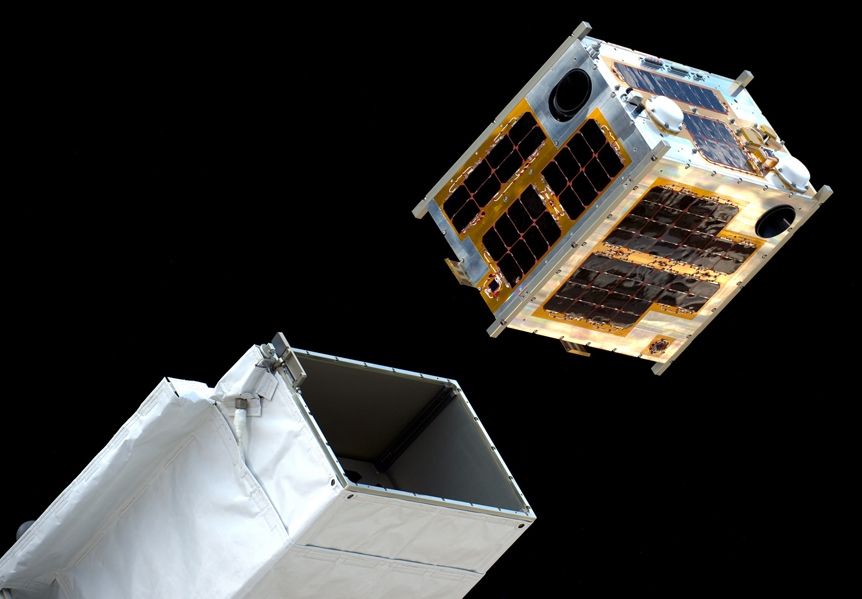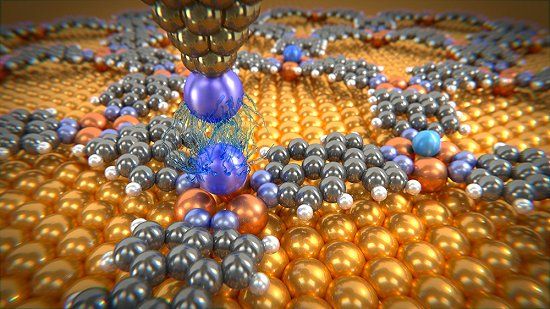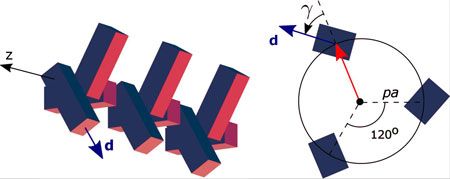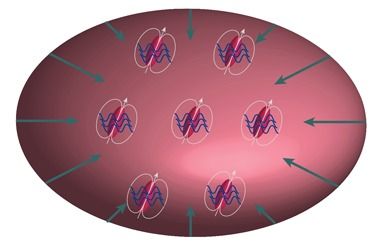Page 11163
May 23, 2016
Metamateriais escondem espaço para recarregamento à distância
Posted by Bruno Henrique de Souza in category: futurism
Invisibilidade do espaço
Os carros já podem ser recarregados à dist ncia, seja na garagem ou na estrada, mas recarregar celulares e outros aparelhos sem fios ainda exige que eles sejam colocados sobre uma base apropriada.
Mas uma solução já está à vista, e poderá permitir que os celulares sejam recarregados sem que nem mesmo precisem ser retirados do bolso.
Continue reading “Metamateriais escondem espaço para recarregamento à distância” »
May 23, 2016
Thousands Converge at IMS2016 to Build Future of Wireless Connectivity
Posted by Karen Hurst in category: futurism
SAN FRANCISCO, May 23, 2016 /PRNewswire/ — Thousands of attendees will convene for the IEEE MTT-S 2016 International Microwave Symposium (IMS) May 22–27 at San Francisco’s Moscone Center to discuss the latest microwave and RF advancements in emerging areas around wireless connectivity. With a theme…
May 23, 2016
Assessing the Scientific Potential of Small CubeSat Satellites — New Report
Posted by Karen Hurst in categories: biotech/medical, engineering, physics, satellites
In the last few years, hundreds of contained “nano” satellites known as CubeSats have been launched in low Earth orbit for many purposes, including for collecting targeted scientific data. Federal agencies such as NASA and the National Science Foundation are exploring the potential of these highly affordable satellites in advancing research goals.
A new report from the National Academies of Sciences, Engineering, and Medicine concludes that CubeSats have demonstrated usefulness for scientific data gathering and can also augment – but not replace — the capabilities of large satellite missions and ground-based facilities. The report identifies examples of high-priority science goals that could be pursued through the use of CubeSats in areas such as solar and space physics, planetary science, and Earth science.
In order to continue building the capabilities of CubeSats for research, federal support is crucial, the report says, which identifies several steps NASA and NSF should take to ensure that CubeSats reach their full potential.
May 23, 2016
Forças de van der Waals são medidas entre átomos individuais
Posted by Bruno Henrique de Souza in category: futurism
Forças de van de waals é medida pela primeira vez em um átomo, os valores encontrado são maiores que as previsão teóricas.
May 23, 2016
Supercrystals with new architecture can enhance drug synthesis
Posted by Karen Hurst in category: quantum physics
Scientists from ITMO University and Trinity College have designed an optically active nanosized supercrystal whose novel architecture can help separate organic molecules, thus considerably facilitating the technology of drug synthesis. The study was published in Scientific Reports (“Chiral quantum supercrystals with total dissymmetry of optical response”).
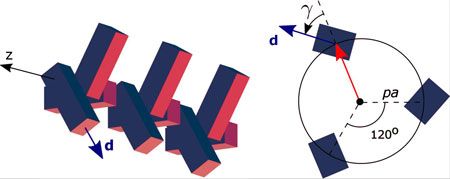
Structure of the helical chiral supercrystal. (Image: ITMO University)
Continue reading “Supercrystals with new architecture can enhance drug synthesis” »
May 23, 2016
Viewpoint: An Arrested Implosion
Posted by Karen Hurst in categories: cosmology, particle physics, quantum physics
The collapse of a trapped ultracold magnetic gas is arrested by quantum fluctuations, creating quantum droplets of superfluid atoms.
Macroscopic implosions of quantum matter waves have now been halted by quantum fluctuations. The quantum wave in question is an atomic Bose-Einstein condensate (BEC), a quantum state with thousands to tens of millions of atoms in an ultracold gas all sharing the same macroscopic wave function. Attractive atomic interactions can cause BECs to collapse in spectacular ways, in what’s been termed a “bosenova,” a lighthearted allusion to a supernova explosion [1]. Tilman Pfau and colleagues from the University of Stuttgart, Germany, have shown that for BECs made of dysprosium, whose bosonic isotopes are among the most magnetic atoms in the periodic table, long-range dipole-dipole interactions between these neutral atoms create a totally new phenomenon: the arrested collapse of a quantum magnetic fluid, called a quantum ferrofluid [2, 3]. Such a ferrofluid relies crucially on the strong dipolar interactions in the dysprosium gas.
May 23, 2016
Keiichi Matsuda’s Hyper-Reality merges digital media with reality
Posted by Karen Hurst in categories: computing, entertainment

Luv this.
In Hyper Reality’s dystopian future city, every interaction has a digital overlay, filling your vision with information like a character in a computer game.
Continue reading “Keiichi Matsuda’s Hyper-Reality merges digital media with reality” »
May 23, 2016
New method to control quantum systems
Posted by Karen Hurst in categories: computing, electronics, quantum physics
Yesterday, we saw the news from D-Wave in development & release of a new scalable QC. Now, Dartmouth has been able to develop a method to design faster pulses, offering a new way to accurately control quantum systems.
Dartmouth College researchers have discovered a method to design faster pulses, offering a new way to accurately control quantum systems.
The findings appear in the journal Physical Review A.
Quantum physics defines the rules that govern the realm of the ultra-small — the atomic and sub-atomic world — which explains the behavior of matter and its interactions. Scientists have been trying to exploit the seemingly strange properties of this quantum world to build practical devices, such as ultra-fast computers or ultra-precise quantum sensors. Building a practical device, however, requires accurately controlling your device to make it do what you want. This turns out to be challenging since quantum properties are very fragile.
May 23, 2016
Light Behaving Badly: Strange Beams Reveal Hitch in Quantum Mechanics
Posted by Karen Hurst in category: quantum physics
A new property of light discovered in hollow, conical beams of photons could shake up some aspects of quantum mechanics.

